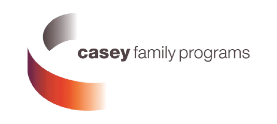

Kansas
Kansas Thriving Families Vision
- Every child deserves a family. Every family deserves to live in a safe, supportive community. To create a flourishing future for our state, Kansas must actively pursue an agenda that maximizes every opportunity for a child’s experiences to be positive, nurturing, and safe.
- Kansas Thriving Families vision is built upon the theory that when families have seamless, universal access to a continuum of comprehensive prevention services, child maltreatment is prevented, and the well-being, safety, and stability of children and families is ensured.
- As part of this work, Kansas is committed to combatting, ameliorating, and preventing racial inequity and to promoting equity, access, inclusion, and engagement.
Kansas Thriving Families Priorities
- Address systemic barriers to create a well-being system in Kansas.
- Develop robust networks of community based primary prevention supports.
- Integrate family/youth/community expertise into design, operation, and improvement of well-being systems.
- Revise definitions of neglect and mandatory reporting that clearly differentiate maltreatment from poverty.
- Align with Maternal Child Health and other public health initiatives that strengthen and support children and families.
Kansas Thriving Families Core Team
- Individuals with Lived Expertise
- Kansas Children’s Cabinet and Trust Fund
- Kansas Department for Children and Families
- Kansas Children’s Service League (Kansas Chapter of Prevent Child Abuse America)
- Kansas State Department of Education
- Kansas Department of Health and Environment
- University of Kansas
Recent Accomplishments
- Adoption of National Family Support Network standards and launch of a Kansas network chapter.
- Preventive legal services offered in communities through multiple strategic initiatives.
- Revised statutory definitions of neglect and mandatory reporting to differentiate maltreatment from poverty.
- Established ongoing transparency in partnerships across family-serving sectors (e.g., child welfare, early childhood care and education, behavioral health).
- Requests for proposals released by core team agencies (e.g., DCF Family Resource Center RFP) target areas identified by communities as priorities.
- DCF investment in Family Resource Centers to serve as community hubs for connecting families to basic needs and economic supports.
Site Contacts
Meghan Cizek, University of Kansas – Center for Public Partnerships and Research (mcizek@ku.edu)
Kaela Byers, University of Kansas – Center for Public Partnerships and Research (kaela@ku.edu)
Maggie Hart, University of Kansas – Center for Public Partnerships and Research (maggiehart@ku.edu)
Content on this page has been provided by the site team or its representatives. Views expressed may not reflect the funders or TFSC partner organizations. Resources may include external links.







